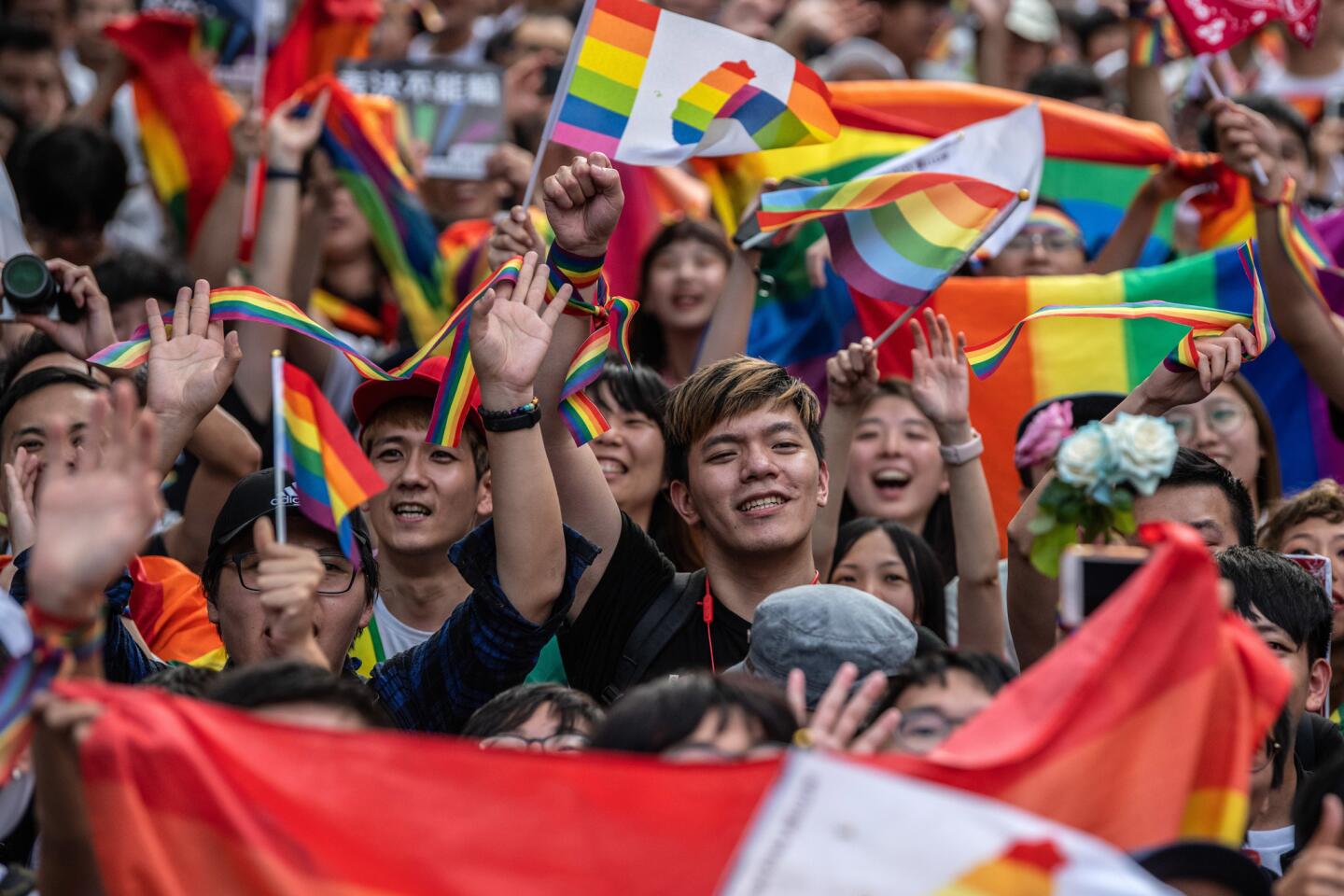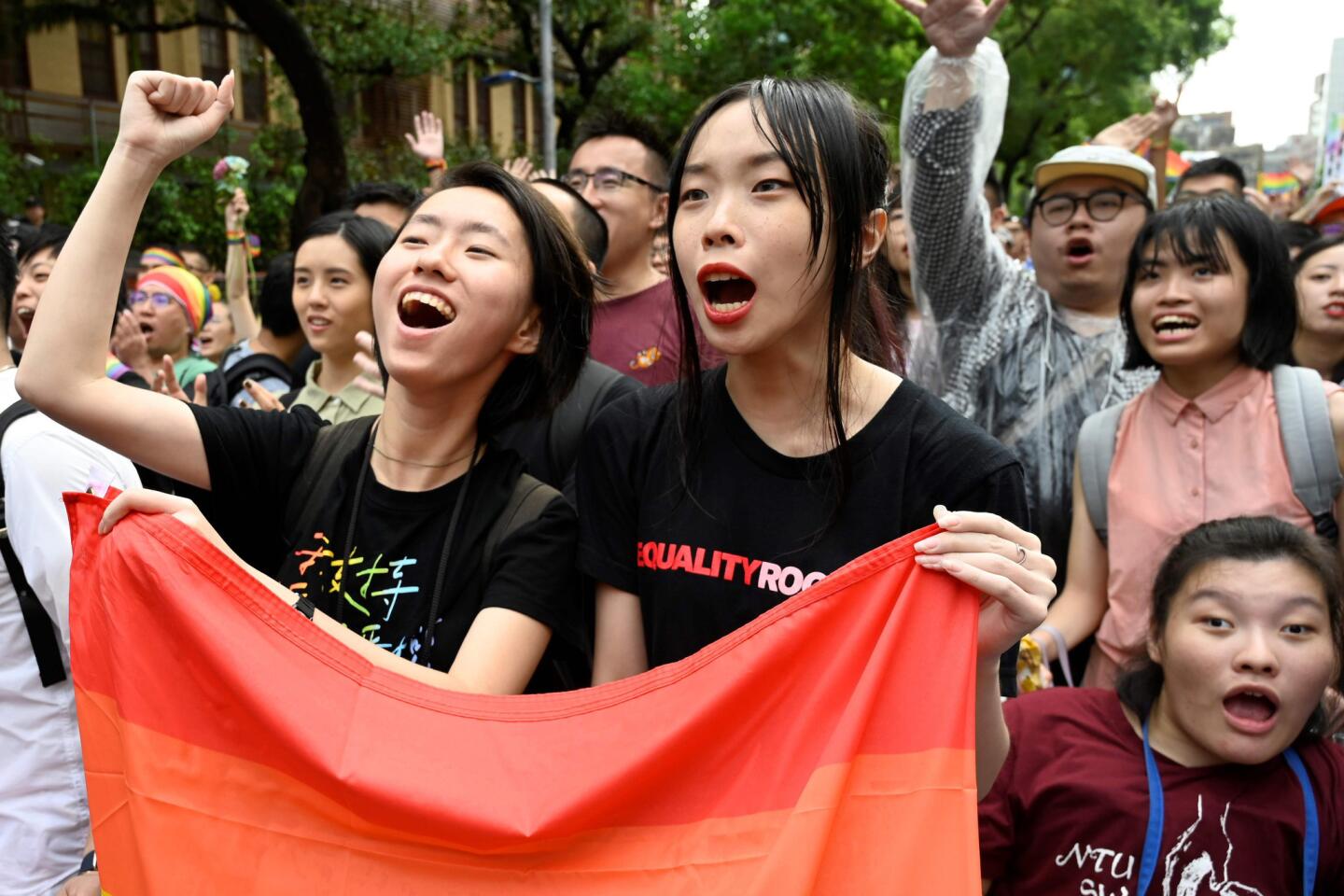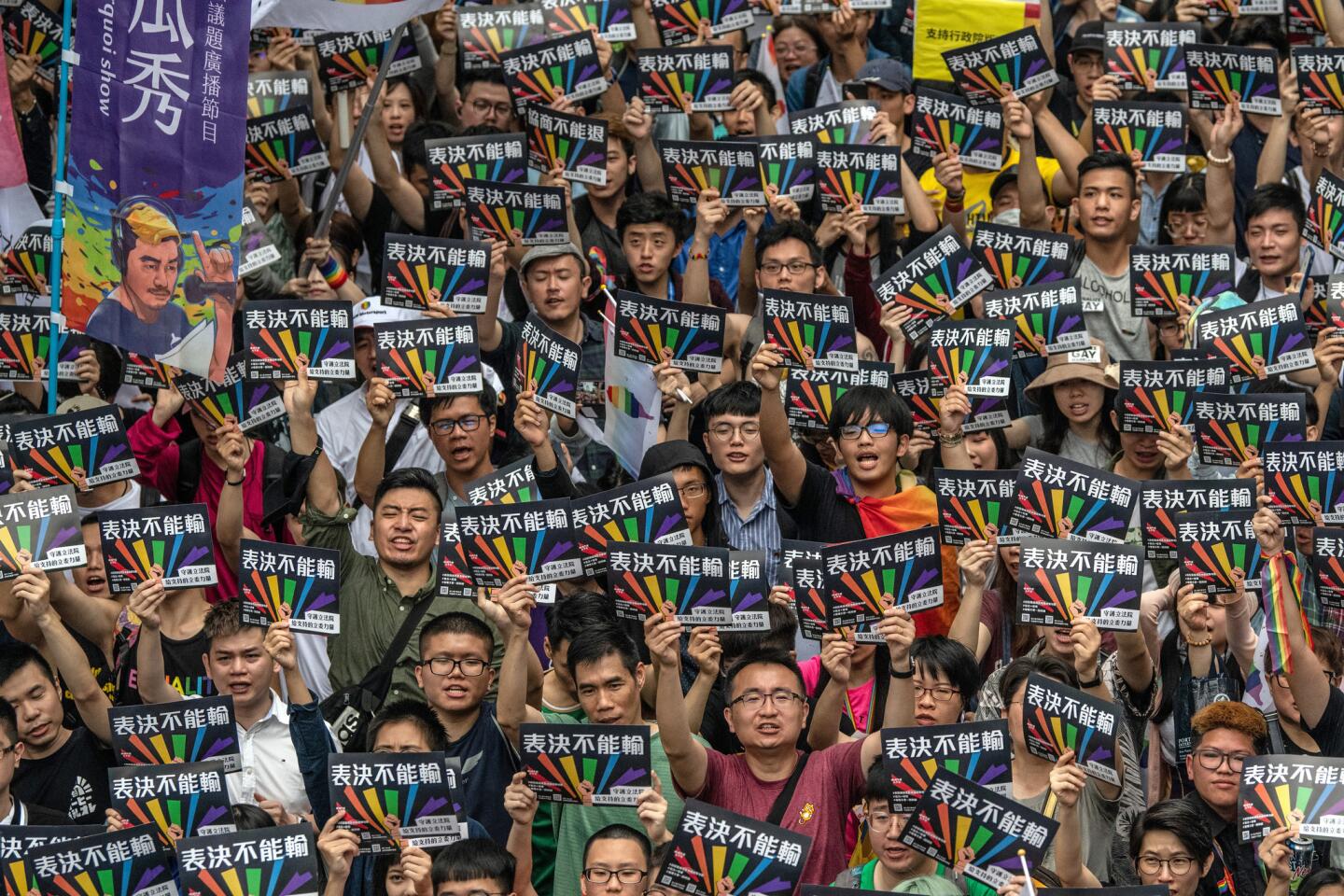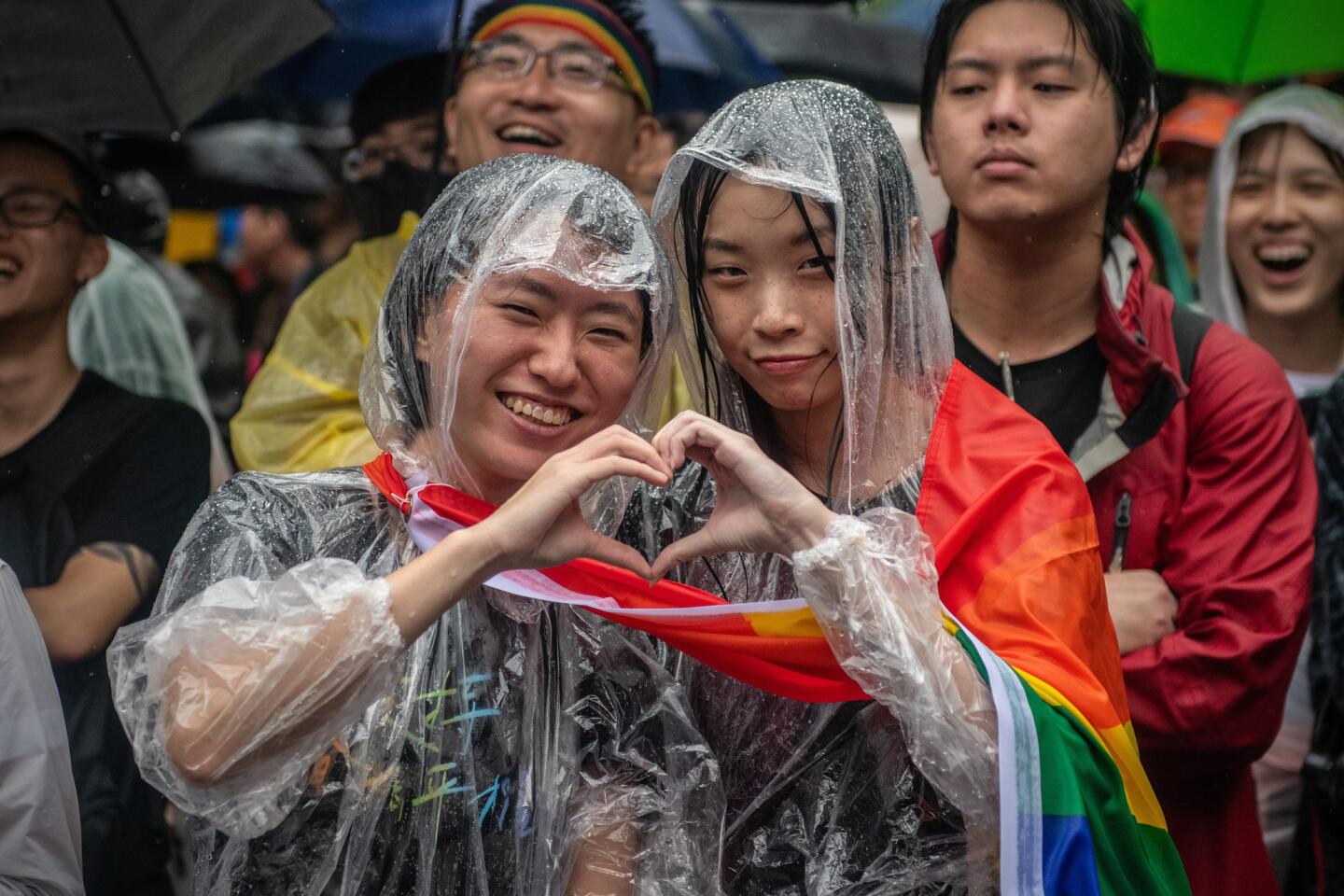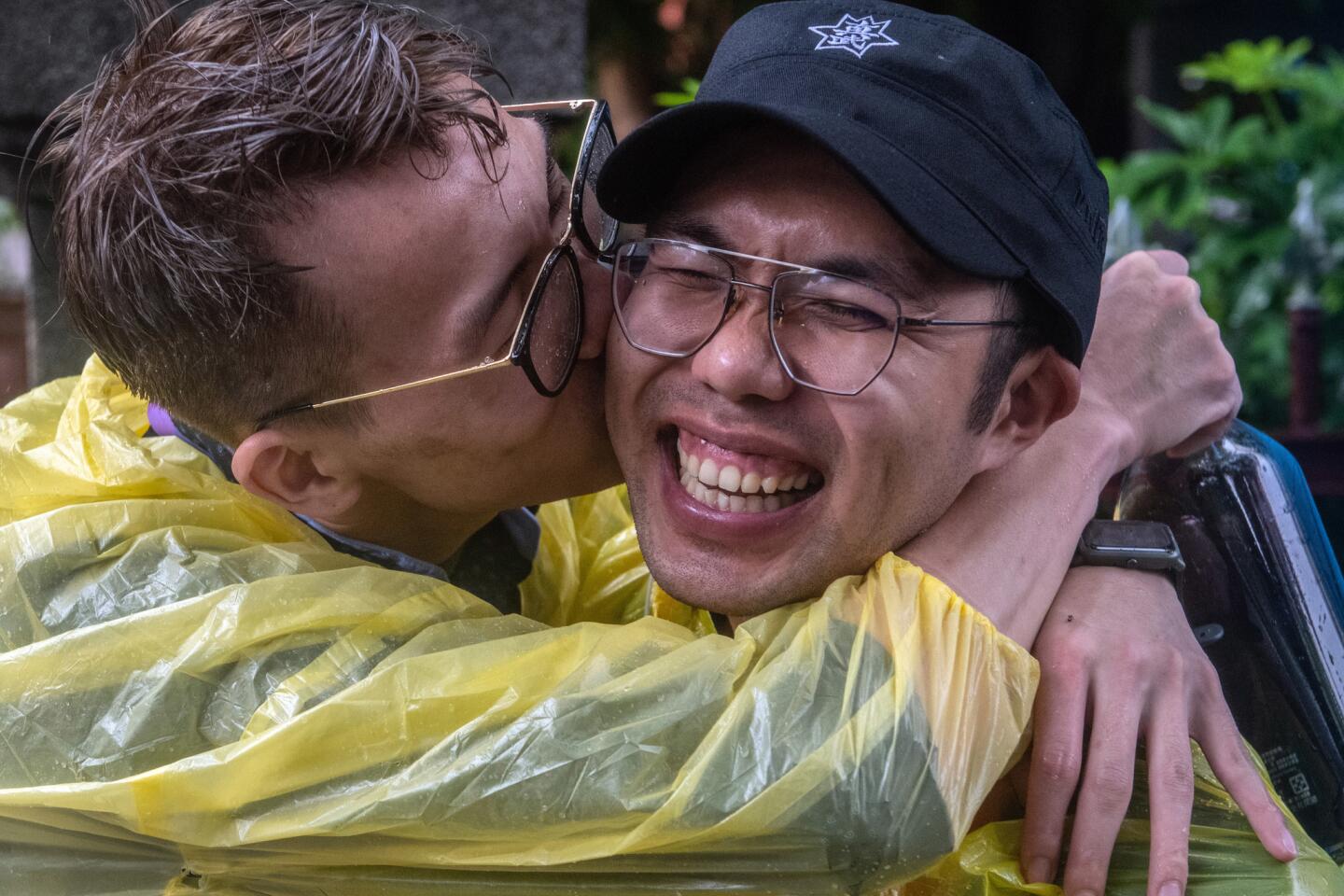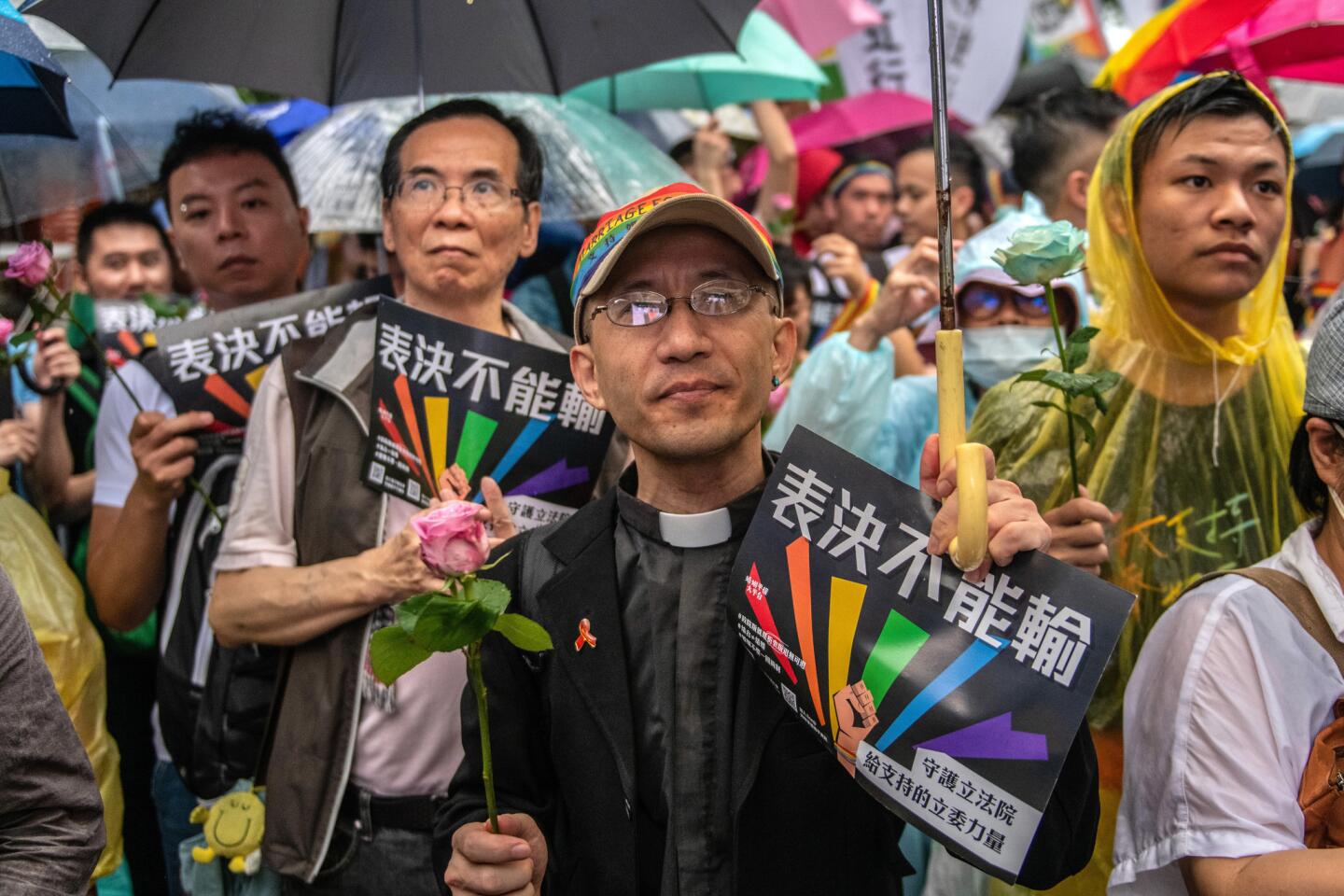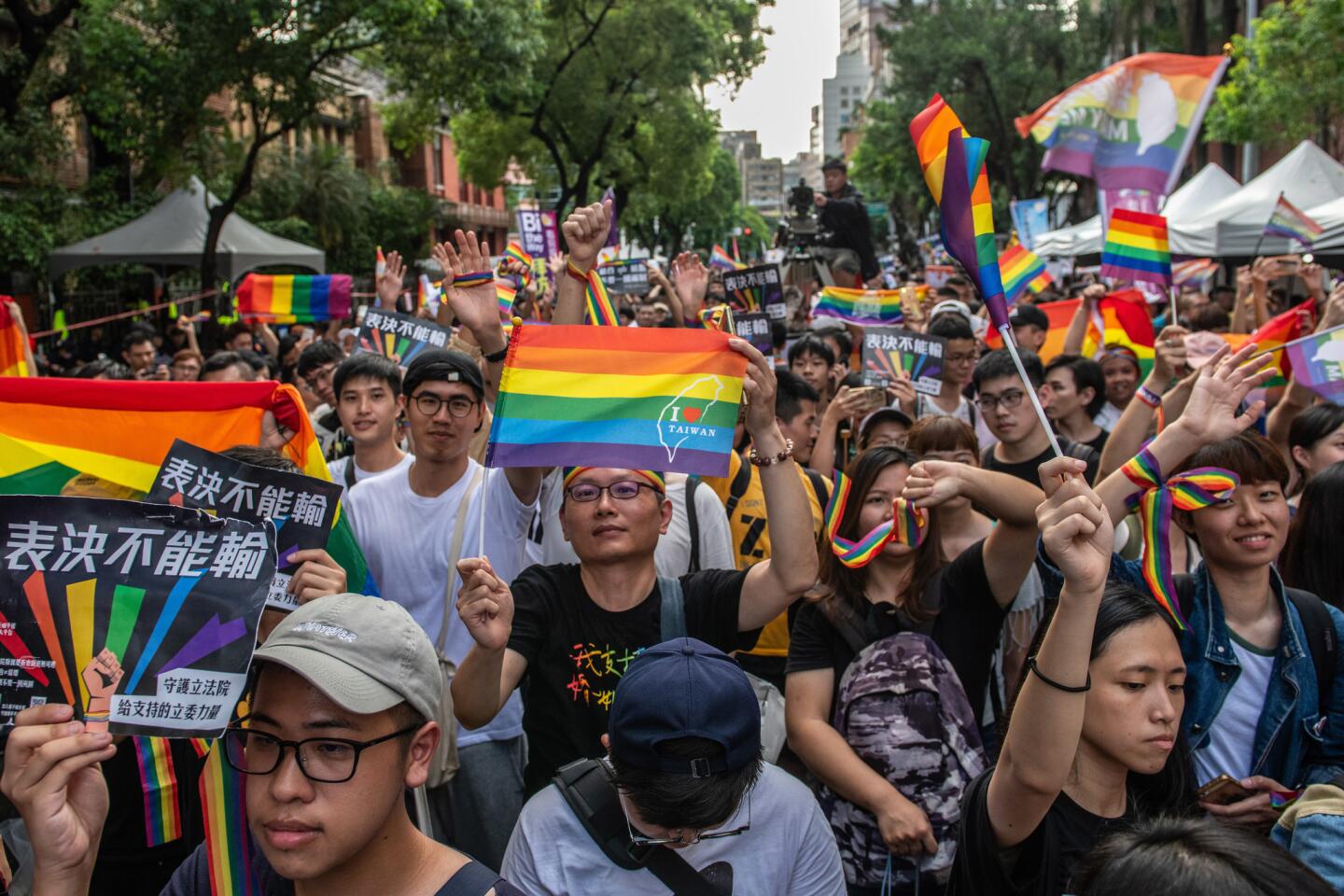Taiwan approves same-sex marriage in a first for Asia
Reporting from TAIPEI, Taiwan — Taiwanese leaders have long tried to stand out from their political rival China so the rest of the world would not confuse the two ethnically Chinese societies. Almost 20 years ago, to bolster its democracy and tolerance for social activism — both weak in China — Taiwan encouraged LGBTQ rights groups to form. Former President Chen Shui-bian was one of their chief backers.
Galvanized by that history, Taiwan on Friday became the first place in Asia is to let same-sex couples marry with most of the same civil code benefits that heterosexual couples get. Taiwan follows 27 countries worldwide, from Argentina to the Netherlands, that have legalized same-sex marriage.
“I think it’s a milestone for same-sex marriage in East Asia,” said Shiau Hong-chi, professor of gender studies and communications management at Shih Hsin University in Taipei. “I’m still quite surprised how fast it can move in comparison with other Asian countries.”
Parliament approved a bill designed to comply with a Constitutional Court order two years ago ordering local governments to issue marriage licenses to same-sex couples. After the law takes effect on May 24, couples can register as married and get the same inheritance and insurance benefits offered to heterosexual couples. They can jointly raise children if one parent is the biological mother or father.
Elsewhere in Asia, only Vietnam allows same-sex marriage, but the marriages are only nominally legal. They aren’t recognized by the government and same-sex couples don’t qualify for the legal benefits granted male-female couples.
Religion, conservative family values and political systems that discourage LGBTQ activism have stopped same-sex marriage efforts in most of Asia, from China into the Middle East.
In China, about 100 LGBTQ activist groups had formed by 2012, but the government frowns on media coverage except for reports that malign the cause, according to a 2014 paper from the U.S.-based advocacy group Solidarity. Chinese officials generally bar civil groups from getting organized enough to challenge the state, effectively stopping any same-sex marriage movement.
China still claims sovereignty over Taiwan, though the two sides have been separately ruled since the Chinese civil war of the 1940s.
Chen — sentenced to 19 years in prison on a graft-related conviction, and currently serving the time under house arrest for medical reasons — had advocated for gay and lesbian rights, among other social causes, to help Taiwan shine in Asia as an open society, said Jens Damm, associate professor in the Graduate Institute of Taiwan Studies at Chang Jung University in Taiwan.
His Democratic Progressive Party particularly encouraged LGBTQ activism when he was president from 2000 to 2008, said Yang Lian-fu, a Taiwanese publisher of local history books. “When Chen was president, we saw the first big-scale activities,” Yang said. “The party was rather left-leaning, so they took up these causes.”
Today, gay pride parades every year in Taiwan draw upwards of 80,000 people. Many supporters had pushed for the same-sex marriage legislation since 2016 when the Democratic Progressive Party regained the presidency. The ruling-party-led parliament had proposed bills as far back as late 2016 but paused in 2017 to await the Constitutional Court order.
Several thousand people, some shouting and waving rainbow placards that read, “The vote cannot lose,” packed the streets outside parliament before Friday’s three-hour session on the government-authored bill.
“This has really key significance,” said demonstrator Hung Ya-li, head of the suburban Taipei-based advocacy group Garden of Hope Foundation’s civil dialogue department. “It means a lot for extending our laws to the overall diversity of the Taiwanese people.”
More than 250 same-sex couples are planning to register marriages across Taiwan on May 24, according to the government-run Central News Agency. At least 1,200 newlyweds and their invitees are scheduled to hold a mass party a day later on a blocked-off boulevard outside the presidential office.
Hsu Pei-chieh and Yang Hsun of Taipei plan to marry so they can end years of being denied joint travel insurance and even the right to use the same residential parking permit. They want children. Most of all, the two women hope to tell everyone around them they are spouses.
“When you introduce yourselves to other people as spouses, people will get it, even if it’s not a genuine understanding,” said Hsu, 30, a Taipei office worker who met Yang, a 29-year-old engineer, five years ago. “If the law gives you a name, then it helps other people understand what LGBT is about.”
Passage of the law will let Taiwan stand out again in Asia, said Lin Chong-pin, a retired strategic studies professor in Taiwan. “It would be a plus in terms of the perception from the Western-dominated world community,” he said. “It’s going to be a positive sign that Taiwan is going forward. In contrast to China, the gap is widening.”
The same-sex marriage bill still had to withstand numerous setbacks, baring a staunch conservative population in Taiwan.
The 2017 Constitutional Court order prompted demonstrations and legislative lobbying by religious groups who opposed same-sex marriage. About 5% of Taiwanese are Christian, but many more in the population of 23 million hold traditional Chinese family values, meaning one man and one woman per marriage.
Opinion surveys in 2012 and 2015 found that slight majorities of Taiwanese backed same-sex marriage. Local media outlet News Lens and the PollcracyLab found in a March 2018 survey that people held “malleable” views based on how the term “legalization” was framed.
Opponents of same-sex marriage had raised fears of insurance benefit scams and children confused by having two mothers or two fathers.
In November, voters passed an advisory referendum asking that marriage be restricted to one man and one woman. Some legislators feared that going against it would offend the millions of “yes” voters, one legislative aide said. But during the parliament debate Friday, many lawmakers urged some measure of legal protection for same-sex couples.
“Don’t make the wrong decision and deprive someone of their happiness,” ruling party lawmaker Hsiao Bi-khim told colleagues on the parliament floor.
About 50 opponents shouted their displeasure with the vote over a downpour outside parliament Friday. “This is going to cause a lot of morality problems,” said Lin Shih-min, office manager with the Taiwan political action group Stability of Power. “From the point of view of the children, they have the right to grow up with both a mother and a father.”
Jennings is a special correspondent.
More to Read
Sign up for Essential California
The most important California stories and recommendations in your inbox every morning.
You may occasionally receive promotional content from the Los Angeles Times.
